'Steel industry now a risky place for fresh investments'

It has become extremely risky to invest in the steel industry of Bangladesh as the country is suffering from economic vulnerability amid sustained inflationary pressure.
Besides, the combined production capacity of local steelmakers already exceeds domestic consumption by around 41 percent, indicating an oversaturated market.
The steel industry's overall production capacity was about 1.10 crore tonnes last year against demand for 65 lakh tonnes, according to Sumon Chowdhury, secretary general of the Bangladesh Steel Manufacturers Association (BSMA).
Still, the country's annual steel manufacturing capacity will likely to increase by another 20 lakh tonnes within the next year as small producers are expanding their capacity.
There are around 120 steelmakers in Bangladesh, with some 40 large companies dominating more than 90 percent of the market, Chowdhury said in a recent interview with The Daily Star.
Referring to the BSMA's latest market assessment, he said steel consumption amounted to about 75 lakh tonnes in 2019 but reduced last year as the implementation of development projects slowed in the face of reduced public spending.
But other than cost cutting to replenish the state coffer, steel consumption in the public sector has decreased to 45 percent from 60 percent of the demand as various mega projects requiring large amounts of the material are nearly complete.
Chowdhury also said it is really difficult to predict when the demand for steel will rise once again as no one knows when the ongoing economic crisis will let up.
"The demand for steel will not increase unless the economy becomes more stable," he added.
Chowdhury pointed out that aside from lower demand, the steel industry is facing difficulties because of the gas crisis and higher foreign exchange rate while sustained inflationary pressure has reduced the purchasing power of individual consumers.
Steel consumption at both the company and individual levels is in decline as prices have risen substantially over the past two years thanks to the higher cost of US dollars and utilities.
The BSMA secretary general informed that the domestic steel sector faced capital losses of about 40 percent over the past one-and-a-half years due to fluctuations in the foreign exchange rate.
Against his backdrop, even some big companies that were encouraged to invest in the industry after witnessing its significant growth in 2018 and 2020 have ultimately decided to postpone their investments until the economy recovers.
The domestic market for steel shrank to Tk 65,000 crore in 2023 due to lower demand, with most factories running at almost half capacity in a bid to reduce costs.
"But it is not commercially viable to run a unit under 80 percent capacity," Chowdhury said.

 For all latest news, follow The Daily Star's Google News channel.
For all latest news, follow The Daily Star's Google News channel. 

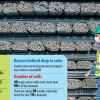
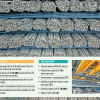
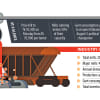

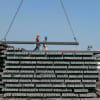

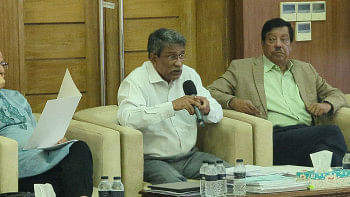
Comments